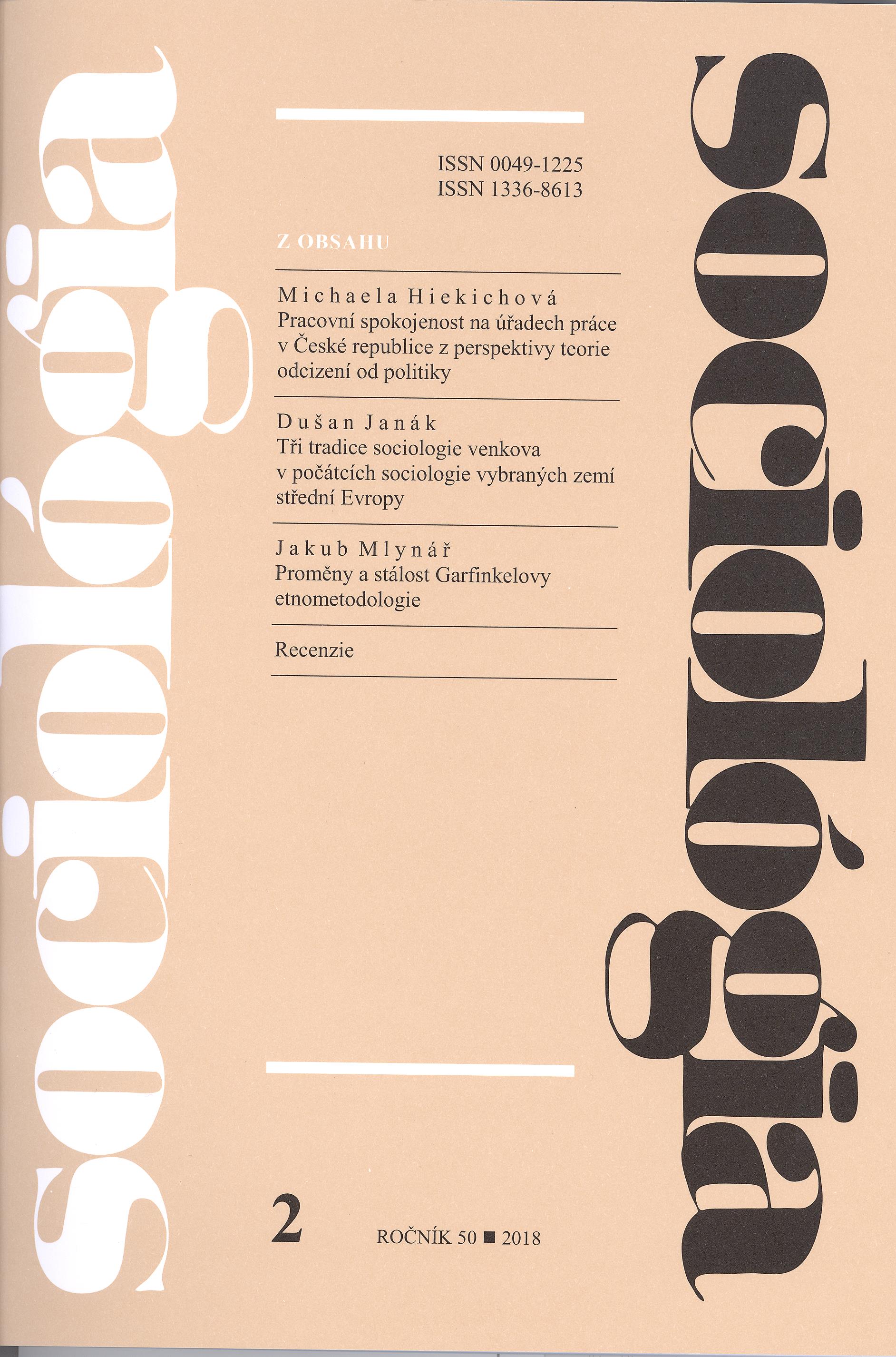Tři tradice sociologie venkova v počátcích sociologie vybraných zemí střední Evropy
Three Traditions of Rural Sociology in the Beginnings of Sociology in Selected Countries of Central Europe
Author(s): Dušan JanákSubject(s): Sociology, Social Theory, Rural and urban sociology
Published by: Sociologický ústav - Slovenská akadémia vied
Keywords: Rural sociology; history of sociology; Central Europe; the 20th century;
Summary/Abstract: Three Traditions of Rural Sociology in the Beginnings of Sociology in Selected Countries of Central Europe. The country life was the most important empirical topic shared by Central European sociologies in the beginnings of sociology in Central Europe (in Poland, Czechoslovakia and Hungary). The comparison based on the content analysis of contemporary sociological journals, the knowledge of relevant books and research in the field of rural sociology and the knowledge of work of the key sociologists identified three specific approaches to the topic. The first is characterized by Polish culturalism, the second by Czech “nationalization” of the topic, and the third by Hungarian and Slovak sociographism. The so-called agrarian question was one of the key political and social problems of the first third of the 20th century and that is why the topic is suitable for the study of politicization of sociology. While the Polish approach is of apolitical nature, the Czech concept is characterized by political connotations related to national questions. In Slovakia the gradual depoliticization of the topic in the context of sociographical approach is apparent, while left-wing social political ambitions are typical of the Hungarian sociographic tradition. These approaches represent certain distinctive ideal types and there exist also significant counterexamples. Sociológia 2018, Vol. 50 (No. 2: 149-171)
Journal: Sociológia - Slovak Sociological Review
- Issue Year: 50/2018
- Issue No: 2
- Page Range: 149-171
- Page Count: 23
- Language: Czech

